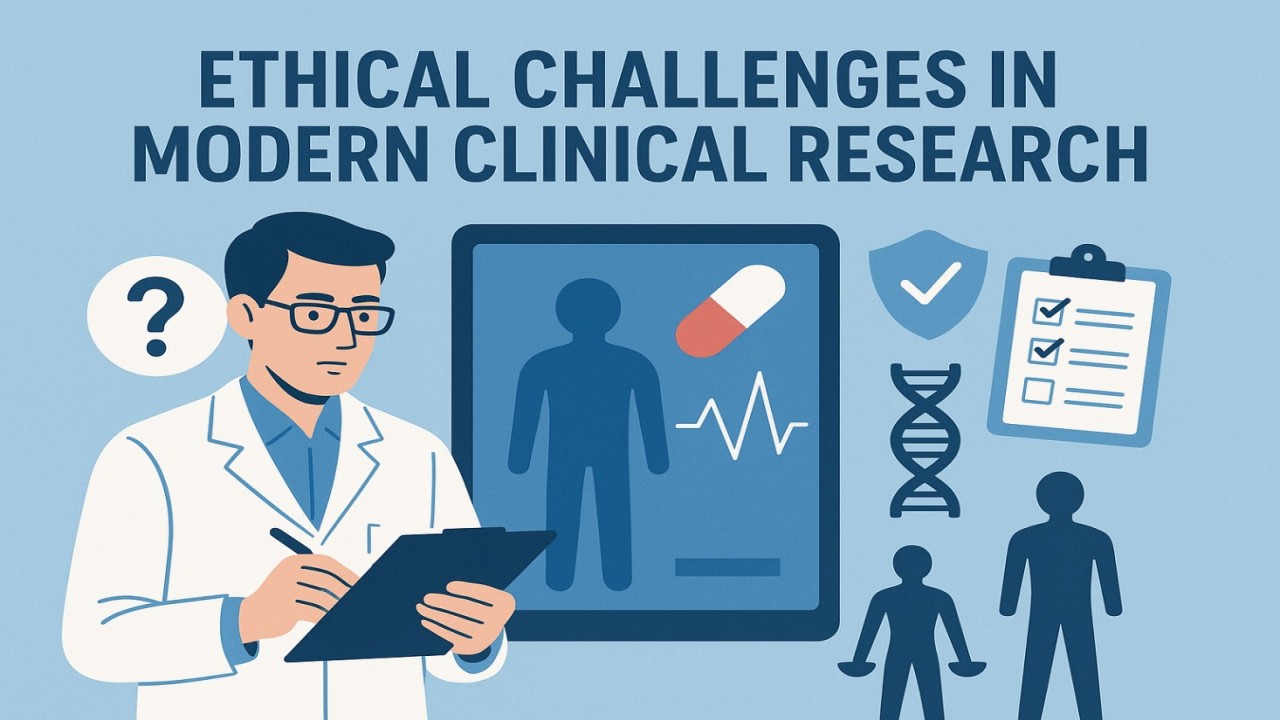
Medical advancement is based on clinical research, which makes it possible to develop novel cures, treatments, and preventative measures. Ethical challenges in clinical research, however, present significant issues alongside offering hope for innovation. The safety, dignity, and rights of participants must always come first.
These ethical issues have grown increasingly complex in today’s environment, where digital technology, international collaboration, and rapidly evolving methodologies are prevalent. Ensuring patient safety, informed consent, and adherence to regulatory guidelines like Good Clinical Practice (GCP) are central to maintaining ethical standards in modern clinical trials.
Informed Consent: More Than Just a Form
One of the most important tenets of moral clinical research is informed consent. Before consenting to participate, participants must have a thorough understanding of the study’s goals, methods, possible risks, and anticipated rewards. Unfortunately, this process is frequently complicated by lengthy technical documentation and complex medical language. It’s a constant struggle to make sure that people can make well-informed decisions.
Protecting Patient Privacy and Data Security
Data privacy has become a major concern with the increasing usage of wearable technology, digital health platforms, and electronic records. If sensitive patient data is not adequately protected, it can be misused and compromised. Strict laws like GDPR must be followed by researchers, and safe methods must be put in place to preserve privacy and public confidence.
Balancing Innovation and Participant Safety
Bold research is often necessary for medical advances, but hurried experiments might endanger participants. Researchers have an ethical duty to reconcile the advancement of science with the preservation of human life. Phased testing, regulatory clearances, and safety monitoring committees are important precautions, but this balance can occasionally be thrown off by sponsor pressure or pressing medical requirements.
Fair and Ethical Recruitment
Another major concern among ethical issues in clinical trials is the recruitment of subjects. Financial compensation may entice vulnerable groups—such as those from low-income backgrounds—to participate in studies, increasing the risk of exploitation. At the same time, for results to be generalizable to larger populations, trials must ensure adequate diversity. Balancing fairness, diversity, and justice without exerting undue influence remains one of the most complex ethical issues in clinical trials today.
Sponsorship and Conflicts of Interest
The majority of clinical research is financed by corporate sponsors or pharmaceutical corporations. Funding is necessary, but it can also result in conflicts of interest. Trial design, data interpretation, or reporting may be skewed by pressure to produce favorable results. Independent oversight and open disclosure of funding sources are essential to preserving the public’s trust in research.
Globalization and Ethical Standards
These days, a lot of clinical studies are carried out in several nations, frequently in areas with laxer regulations. This calls into question whether participants are similarly safeguarded everywhere. To avoid exploitation and maintain equity in international research, universal ethical standards that are applicable everywhere must be established.
Conclusion
Though it has significant ethical obligations, contemporary clinical research has the potential to yield life-saving discoveries. The ethical challenges in clinical research, which range from conflicts of interest and global equity to informed consent and patient privacy, emphasize how crucial it is to prioritize participant welfare. Transparency, equity, and safety should be given top priority by researchers to ensure that medical innovation advances without compromising moral standards.


